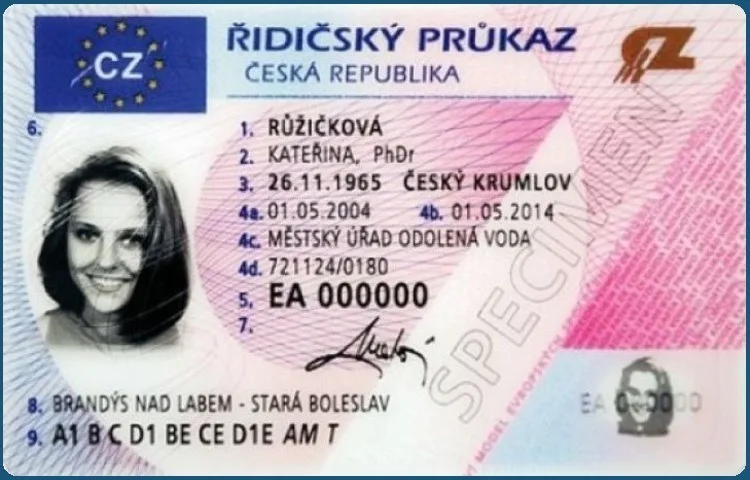5 Killer Quora Questions On Black Market Driving License

The Dark Truth of Black Market Driving Licenses
In the dynamic world of modern transportation, a legitimate driving license is not just a notepad; it's an important document that represents legal eligibility to run an automobile. However, for some, acquiring this essential license through legal and procedural ways has become what they consider a troublesome challenge. Go into the world of black market driving licenses-- a shadowy and unsafe alternative to the main process.
The black market for driving licenses has actually grown silently but regularly in lots of nations, fueled by a mix of aspects: bureaucratic bureaucracy, corruption, and plain criminal business. This phenomenon raises alarming questions about legal enforcement, roadway safety, and ethical obligation.
The Anatomy of a Black Market Driving License
A black market driving license is an unlawfully obtained or counterfeit document that may imitate the appearance of an authentic driver's license or, more concerningly, might even include falsified federal government records. Black market sellers utilize numerous approaches to offer illicit licenses. Typical methods include:
Forgeries: These licenses are expertly crafted fakes designed to pass cursory assessment. In numerous cases, the advancements in phony recognition innovation make them almost equivalent from genuine documents.
tschechische führerschein in deutschland : Some black market operators involve damaged officials within licensing departments who issue genuine licenses in exchange for kickbacks. These are especially harmful, as they are technically legitimate however obtained fraudulently.
Online Sales: The increase of the dark web and encrypted messaging platforms has actually made it simpler for purchasers and sellers to work out the sale of unlawful paperwork discreetly. Social media platforms likewise see erratic advertisements for "quick and simple" licenses without the need for testing.
The Demand for Black Market Licenses
So, who's purchasing them, and why does the need persist? The appeal of the black market driving license is rooted in a few essential inspirations:
Preventing the Process: In many regions, the official channels for getting a license can be tedious, time-consuming, and filled with inadequacies. Black market sellers assure a quicker path without the trouble of documentation, roadway tests, or queues.
Unqualified or Underage Drivers: Those who can not legally obtain a license, such as underage motorists or individuals who failed their driving exam, turn to prohibited alternatives as a shortcut.
Illegal Immigrants: Migrants or refugees without the proper legal status fret about being left out from legal systems-- driving without documentation might seem like their only option, making them vulnerable to exploitation by black market vendors.
Cost Advantage: While this is not universally applicable, some discover black market license rates to be more "economical" than legal channels, particularly where rampant main corruption inflates bribes within the system. Ironically, this further fuels the underground economy.
The Risks and Consequences
What might appear like a faster way is laden with serious risks for those involved, in addition to for society at big. Acquiring and utilizing a black market driving license is not simply unlawful-- it is a choice that could have profound and unsafe consequences.
Legal Repercussions: Getting caught with a fake or fraudulently obtained license can result in substantial fines, jail time, or both, depending upon nationwide laws. Black market clients may also deal with irreversible bans on future licensing.
Road Safety: One of the most significant factors driving licenses exist is to make sure that chauffeurs have actually been correctly trained and evaluated to operate lorries securely. A driver with a black market license might do not have the abilities or understanding to browse highways responsibly, threatening countless lives.
Identity Theft and Exploitation: In some cases, people who get a black market license might unwittingly provide delicate personal info to criminal networks. This can expose them to identity theft, financial scams, and more.
Undermining Legal Systems: The prevalence of black market licenses wears down public rely on official organizations and compromises the integrity of licensing authorities, particularly in areas where corruption is already an issue.
Taking on the Problem
Resolving the concern of black market driving licenses needs a multi-faceted method involving legal reform, increased oversight, and education.
Streamline the Legal Process: Licensing procedures must be transparent, accessible, and effective. Streamlining documents requirements and reducing wait times might minimize the desire to look for illegal options.

Break Down on Corruption: Governments must strictly keep track of licensing authorities and enforce punitive measures against officials discovered taking part in prohibited practices such as accepting allurements.
Technology-Driven Solutions: Integrating advanced technologies such as biometric recognition, blockchain systems, and digital databases could make it harder for forgeries to thrive or for corrupt workers to undermine the process.
Public Awareness Campaigns: Educating the public about the threats of black market licenses-- both in terms of security and legal consequences-- can hinder demand while promoting safe driving practices.
Target Criminal Networks: Law enforcement firms need to invest resources into discovering and dismantling the organograms of distributes accountable for producing and distributing phony licenses.
Conclusion
The black market driving license is more than simply a prohibited workaround-- it represents a more comprehensive challenge for authorities aiming to maintain lawfulness, security, and trust on the roads. While instant temptations may tempt people into utilizing such unlawful files, the long-term effects far surpass the convenience. A coordinated effort between governments, law enforcement, and residents is essential to extinguish this dangerous phenomenon and pave the way for safer, fairer automobile systems for everyone.
The next time somebody considers taking this faster way, they might want to hesitate-- not only for their own security but for the security of everybody who shares the roadway.
